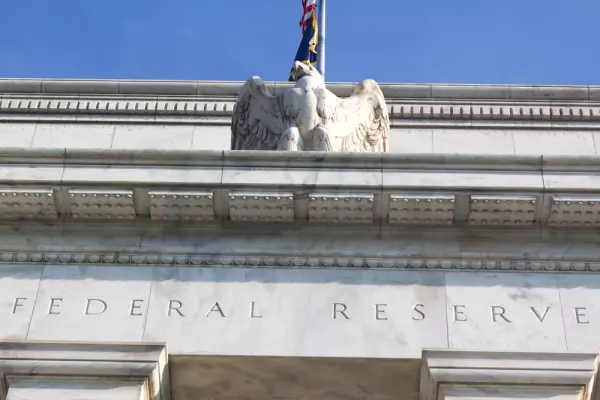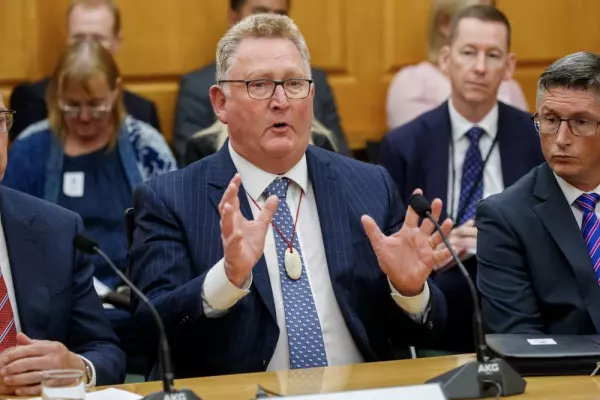Company directors will require the agreement of half their creditors by both number and the value of debts owed before they can invoke the six-month 'hibernation' process that Finance Minister Grant Robertson announced last Friday.
The new regime will also require businesses to meet a new threshold test, details of which are still some days away.
While published detail is scant, the hibernation regime will give companies options either to freeze debts for six months and keep trading, or to freeze the whole company for a six-month period.
Government ministers and officials are hoping most businesses will choose to keep trading rather than put their whole operation on ice, and the extent to which they are able to freeze either debt or their whole operation will be highly dependent on the agreement of a majority of outstanding creditors.
The debt 'hibernation' regime - more details
The initiative allows companies to petition their creditors - anyone to whom they owe a commercial debt - to allow them effectively seven months' relief from repayment or, if a majority of creditors by both value of debts outstanding and number agree, to allow the company to cease trading and spend up to six months in 'hibernation.'
Key elements of the scheme are:
- meeting the terms of a new threshold test, details of which have yet to be announced;
- such a stand-still will only occur after a vote among creditors;
- 50 percent of creditors by both number and value must agree to the stand-still;
- a one-month moratorium on enforcement of debt repayment will apply from the date of notification of an intention to seek a hibernation agreement;
- the creditors vote must be held within a month;
- if approved, the 'hibernation' or 'stand-still' will apply for six months;
- the month between notification of intention to seek a stand-still resolution and the vote gives a period for negotiation with creditors and debt-holders/investors.
Debts and other liabilities remain active and interest will still accrue.
Unknowns
Unknown yet are the details of the new threshold that directors will need to meet before they can trigger the moratorium and voting process, but MinterEllisonRuddWatts senior partner Lloyd Kavanagh told BusinessDesk it was likely to include "requirements of the company being solvent in the near past (ie, prior to the covid-19 event), the directors’ expectation that the company will be able to meet its obligations in the future (ie, trading prospects to 'normal') and potentially a good faith assessment by the directors that the hibernation is in the best interest of the company and creditors."
It remained to be seen how the draft legislation would deal with so-called 'ipso facto' clauses that allow an agreement to be terminated because of insolvency or financial distress.
"It would seem inconsistent with the proposed regime, for entry into the moratorium to permit/trigger termination of ongoing agreements, like a lease," said Kavanagh.
Alongside the stand-still regime, the government also announced a relaxation of the insolvency law requirements that many business advisers were warning could tip a larger than necessary number of companies into receivership or liquidation because of the sudden cessation of cashflow throughout the economy, caused by the covid-19 lockdown.
The new 'safe harbour' regime - more details
- Runs for six months from Friday, April 3;
- Allows directors to continue to trade, despite solvency concerns created by the covid-19 crisis as long as:
- in the good faith belief of directors, the company is facing or is likely to face significant liquidity difficulties in their company or their creditors in the next six months as a result of covid-19; and
- the company was in a position to pay its debts as they fell due on Dec. 31 2019; and
- directors in good faith consider it is more likely than not that they will be able to pay debts as they fall due within 18 months, either because trading conditions improve or accommodations are likely to be able to be reached with creditors.
The two relevant clauses of the Companies Act to which the safe harbour regime applies are Sections 135 and 136, which deal respectively with a prohibition on 'reckless trading' and a duty on a company only to incur 'obligations' - debts, liabilities, contractual arrangements etc - that it believes it will be able to 'perform'.
Much debate
BusinessDesk understands there was considerable debate on the question of whether the safe harbour regime applies more to s135 or s136, with officials coming down on the side of the view that, for many previously viable firms, it will not necessarily be considered 'reckless' to continue to try to trade through the covid-19 national lockdown and subsequent reopening of the economy.
Rather, the more relevant test for directors is to focus on whether they are confident that any liabilities they currently carry or are considering taking on are, in good faith, reasonably likely to be able to be met, assuming an economic revival, if not a return to trading conditions that prevailed before the covid-19 crisis hit.
Legislation has yet to be drafted for either of these measures, so the exact wording will have to wait until a bill can be tabled. In the meantime, an Order-in-Council - effectively an edict signed off by the Governor-General to express the underlying policy intent - is being considered. That would see the measure gazetted as a short term measure.
With Parliament suspended until at least April 28, it is unclear what kind of select committee process will be possible for the ensuing legal changes, but Finance Minister Grant Robertson is promising there will be some form of parliamentary scrutiny.
Other changes
Several other changes to companies law will also be introduced at the same time:
- the period of vulnerability under the voidable transactions regime will be reduced from two years to six months where the debtor company and the creditor are unrelated;
- insolvency practitioner licensing will be deferred for up to 12 months;
- provisions relating to electronic signatures applying to security agreements containing powers of attorney will be updated to allow their use;
- a range of statutory deadlines will be deferred and relaxed, eg, in respect of annual meetings and filing annual returns;
- temporary relief for entities that are unable to comply with their constitutions or rules because of the impacts of covid-19 and providing that entities can use electronic communications even if their constitution or rules do not allow them to do so.













